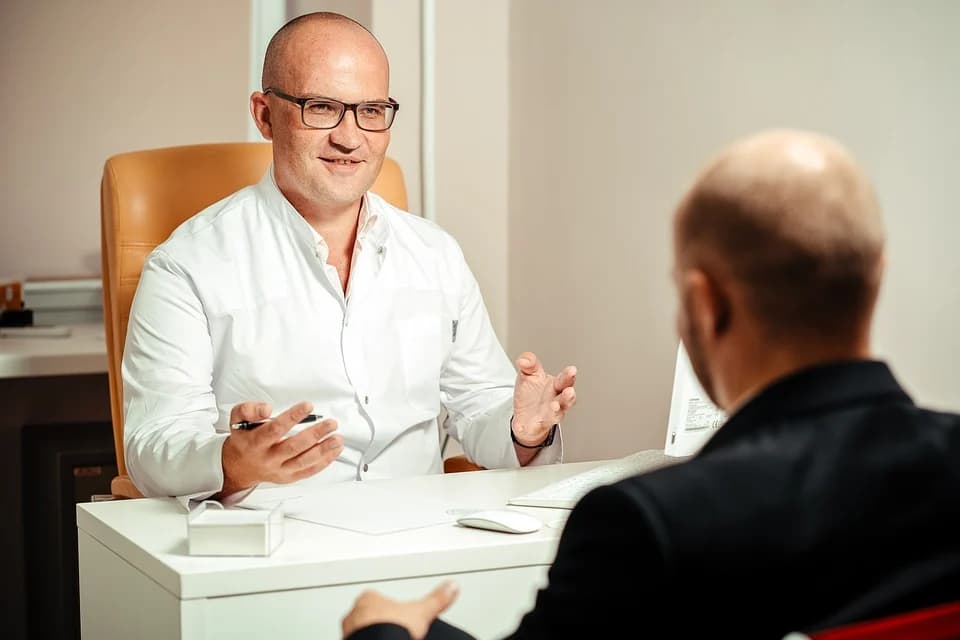The combination of these factors – the science behind mental illness and recent advances in psychiatric treatments – has created an opportunity for psychiatry practices to take center stage as revolutionary leaders of patient care. An unfortunate twist of this is that many practices have opened during times of crisis – namely wars and pandemics.
These six useful tips are meant to help psychiatrists who want to start their own practice during a pandemic.
Table of Contents
Have a strong foundation of knowledge
Today’s psychiatrists are increasingly expected to be well-versed in psychopharmacology, but also to have experience with both psychiatric and psychological assessment. Psychiatry is a relatively small specialty field, so the common understanding among doctors is that there are very few “general” psychiatrists.
This implies that if you are interested in psychiatry, you are probably quite skilled in the specialty already. Expand your knowledge in psychiatry by consulting more than one, behavior or addiction treatment website or resource to diversify what you need to know. Include some basic knowledge about marketing and business management in your research.
By including psychological assessment, you will be able to provide better service for patients who are struggling with mental illness or addiction and also want help with their life or career struggles. Learning about the business and marketing side will give you an edge, especially when it comes to managing your own clinic.
Know what to expect from your patients
Not all of your patients will be coming to see you due to a mental illness. Some may come because they are worried about the virus and want someone who can tell them that they are fine. Others may come out of concern for a loved one, or as a precautionary measure. No matter the reason, it’s important to keep patient confidentiality and not tell them about the other patients that you see.
It is important to be helpful and reassuring, but not patronizing. Let your patients know that they are allowed to ask questions, and answer those questions as truthfully as you can without breaking doctor/patient confidentiality. For example: if a patient asks whether or not someone close to them will get the virus, you could say something like, “I can’t speak for your friend or family member. I have never treated them and have no idea how their body might react to COVID-19 or the flu.” If a patient asks if they have it too, try to be as reassuring as possible that they are not showing any signs of an illness at this time, even if they are still having significant symptoms. If you feel that their concerns are valid and warranted, it is okay to send in a referral for an evaluation by another professional.
Choose the right location and building to start your practice
If your psychiatry practice is located in an area that has been hit hard by the pandemic, such as a major city or near a military base, you could find yourself with more patients than you know what to do with. A better choice would be to choose a location that is less vulnerable and offer your services to those who need them most.
Keep your services accessible and affordable
Psychiatry during a pandemic is expensive, both for the patient and for the psychiatrist. Many psychiatrists will charge patients hundreds or even thousands of dollars for treatment, but the current economic conditions make this difficult to justify. Lowering costs by using more affordable treatments can help keep customers coming back. Some less expensive options include:
- Group therapy sessions. These are cheaper than individual therapy sessions, increase patient confidentiality, and allow patients to socialize with others who are going through similar problems.
- Offer other therapy/treatment options. Offer counseling/psychotherapy services in lieu of traditional psychiatry, or prescribe less expensive anti-depressants and sleep aids to patients. While this may not be as effective for severe cases, it can help keep costs low.
Have enough supplies for you and your staff at all times
Psychiatric facilities will be among the first places to run out of supplies, especially in a pandemic. Make sure you have enough on hand for your practice, but also have a way of getting more when you need it. Face masks, face shields, hand sanitizers, and personal protective equipment (PPE) are vital supplies that should not run short no matter what the stage of the pandemic is. While mass vaccination programs have proven effective in preventing the spread of the virus, news about evolving virus strains still emerges, and that still prompts extra care among healthcare professionals and patients.
Keep up to date with the latest scientific research on the flu virus and its transmission
This is especially important during a pandemic because one of the ways doctors will determine its contagiousness is by taking its history. If you are well-equipped to answer questions about the virus’ history, you can both prevent misinformation from spreading and assist other medical professionals in their quest to treat the sick. Keep up to date with new treatments and don’t become outdated. The best way to do this is by reading articles, journal articles, watching lectures via video conferencing, or even attending in-person lectures.

Psychiatry is an important field that can help people through difficult periods. These will help maximize the effectiveness of your psychiatry practice during a pandemic. By following these tips, psychiatrists can start practicing with fewer challenges.




